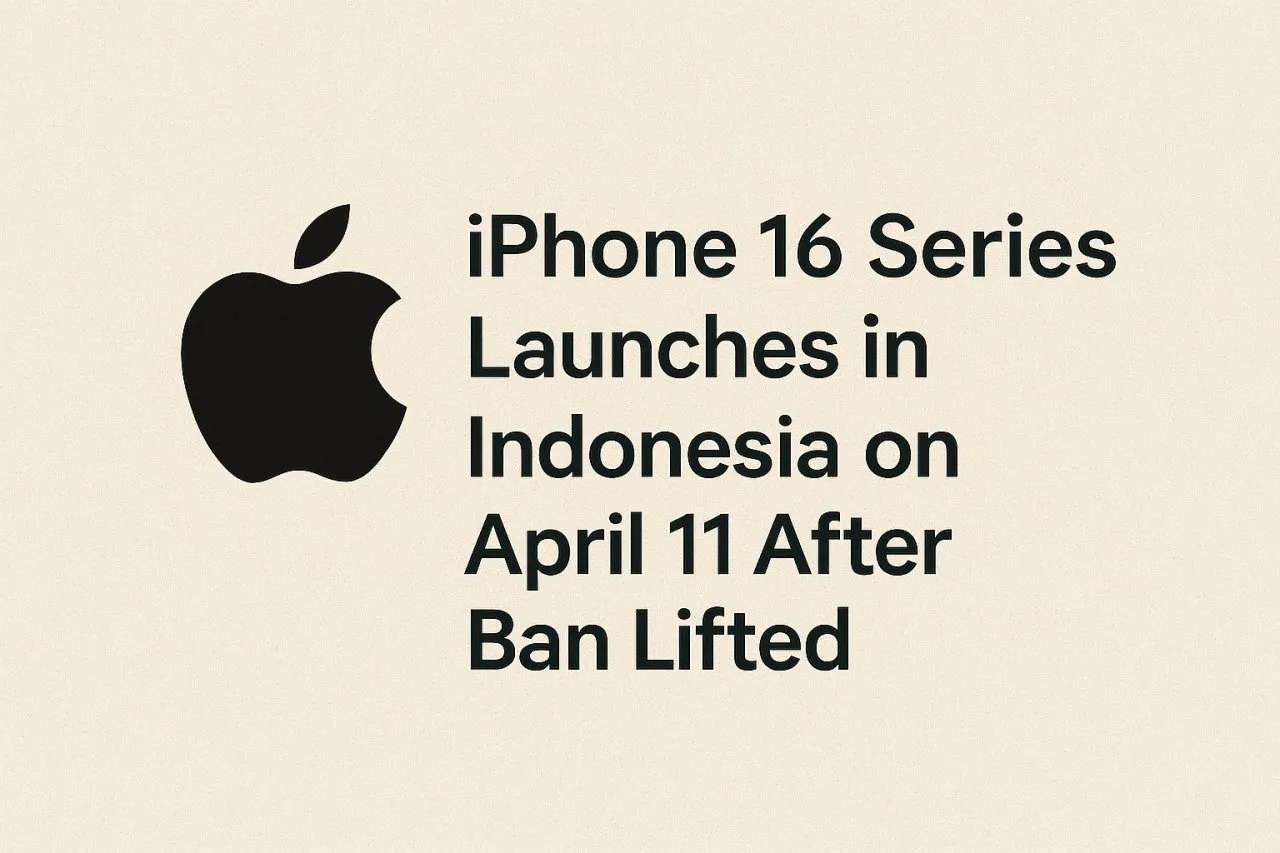Apple’s iPhone 16 series is finally back on sale in Indonesia, ending a four-month suspension that had disrupted the company’s operations in one of Southeast Asia’s most important markets. Beginning April 11, Indonesian customers can officially purchase the latest iPhone models, following Apple’s compliance with the country’s Domestic Component Level (TKDN) regulations.
Why the iPhone 16 Was Banned
The Indonesian government halted iPhone 16 sales back in October 2024, citing Apple’s failure to meet the 40% local content requirement imposed under TKDN laws. These rules mandate that foreign tech companies must contribute to the local economy through:
- Manufacturing partnerships
- Software development
- Research and development (R&D)
Apple’s initial efforts were considered inadequate by regulators, triggering the sales freeze that cost the tech giant millions in potential revenue.
Apple’s $150 Million Response
To meet the requirements and regain market access, Apple negotiated a deal with the Indonesian government and agreed to invest $150 million. As part of the deal, Apple will:
- Build two new manufacturing facilities:
- Batam (AirTags production)
- Bandung (accessory manufacturing)
- Establish a semiconductor R&D center, the first of its kind for Apple in Asia
- Launch educational programs focused on coding and tech training for Indonesian youth
At one point, reports suggested Apple was willing to invest as much as $1 billion, but the final agreement settled at $150 million—still a significant commitment that opens the door for long-term growth in the Indonesian market.
Impact on Consumers and Apple’s Market Share
During the ban, Indonesians could still import iPhone 16 models for personal use only, but commercial resale was prohibited. This restriction not only disrupted supply chains but also weakened Apple’s visibility in a country with 280 million people—making it one of the largest smartphone markets globally.
Now that Apple is officially back in the game, the company is expected to regain its footing just in time for its WWDC25 event in June, where it will showcase major software updates and rumored AI-powered features.
A Sign of the Times
Indonesia has made it clear that global tech firms must contribute locally if they want to operate within its borders. Apple’s strategy to meet TKDN requirements sets a precedent for other companies navigating similar restrictions. Notably, Google’s Pixel phones remain banned in Indonesia due to non-compliance.
This move not only benefits Apple by restoring access to a crucial market, but also positions Indonesia as a potential R&D and manufacturing hub in Asia.
Final Thoughts
Apple’s return to Indonesia is more than a sales victory—it’s a case study in how multinational tech companies can adapt to local policy pressures while expanding their global footprint. For Indonesian consumers, it means greater access to the latest Apple technology. For Apple, it’s a timely recovery and a strategic investment in Southeast Asia’s digital future.

